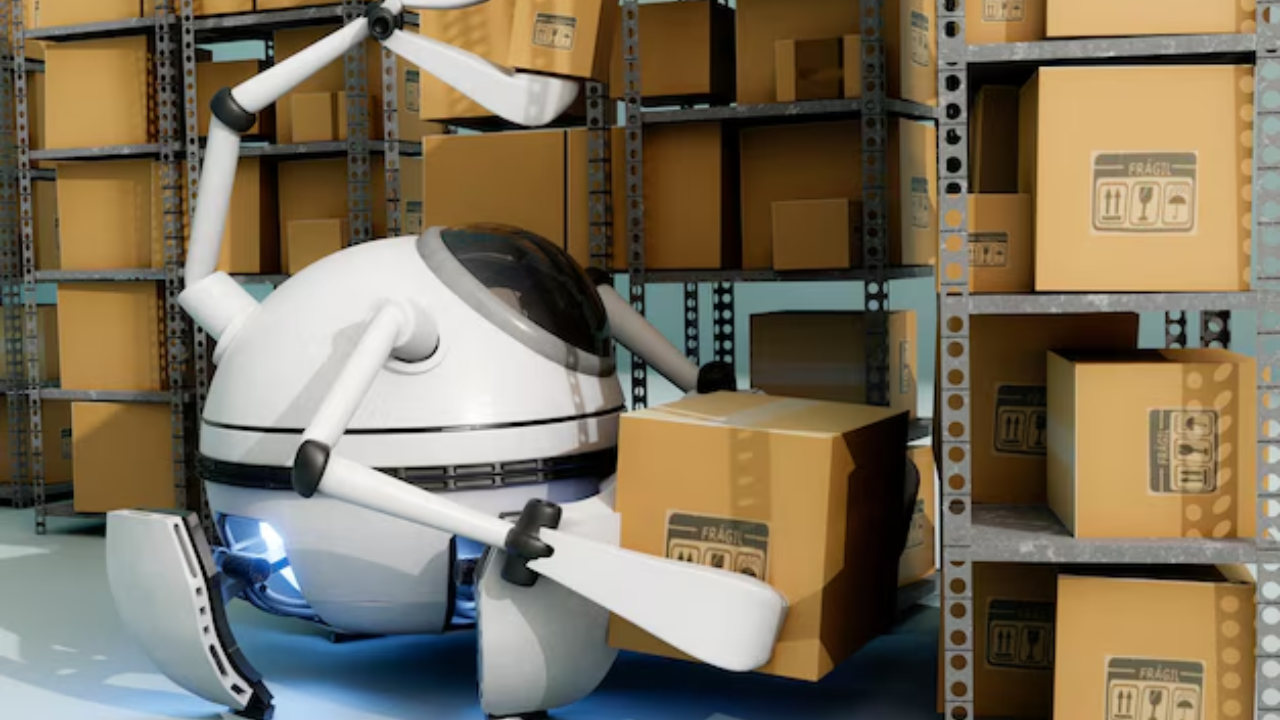Do you agree that in the fast-paced business world, managing supply chain efficiently is more important than ever? If so, you may agree that despite exciting technological advancements, such as robots, drones, and many supply chain tasks are still done manually.
That’s where AI supply chain automation comes into play. It helps to change the manual trend by streamlining procurement and eliminating operational bottlenecks. It also offers transformative benefits for businesses by streamlining procurement processes and optimizing supply chain management.
But if you are still reluctant about how AI supply chain automation is used in business, then fear not, as we’ll discuss the benefits of automation in business here.
The Evolution of Supply Chain Automation
Historically, the supply chain was a complex web of requisitions, purchase orders, and vendor management that relied heavily on manual input. This traditional approach was time-consuming and prone to errors and inefficiencies. The advent of AI has dramatically changed this landscape, introducing advanced tools that automate these tasks, thereby eliminating operational bottlenecks and enhancing overall efficiency.
AI-driven supply chain automation platforms are designed to handle some of the most complex and time-consuming tasks. By automating processes from requisitioning to receiving, these platforms help businesses improve operational efficiencies by over 50%, ultimately increasing profitability and freeing human resources to focus on innovation.
Automating Procurement: A Game-Changer for Businesses
One of the most significant advancements in AI supply chain automation is the ability to automate the entire procurement process—from requisitioning to receipt. Traditional procurement involves multiple steps and significant manual effort, including converting requisitions into purchase orders, sourcing from vendors, and managing inventory.
AI powered supply chain automation streamlines this process by automating requisitioning, sourcing, and procurement tasks. For instance, requisitions can be submitted through various channels—emails, text messages, internal workflows, or chatbots—without needing specific part numbers. The AI platform automatically identifies and matches the requisition with the most suitable suppliers, considering real-time prices and availability.
Moreover, these platforms use machine learning algorithms to improve their performance continuously. They can analyze historical data, predict future needs, and make recommendations based on real-time insights. This enables businesses to make informed decisions quickly, ensuring they always have the best suppliers and prices.
The Benefits of AI-Driven Automation
AI supply chain automation offers numerous benefits to businesses, particularly in procurement and sourcing. Here’s how it can transform your operations:
- Enhanced Efficiency: Automating repetitive tasks, such as converting requisitions into purchase orders, saves significant time and reduces errors. This leads to faster processing and fewer operational disruptions.
- Cost Savings: By automating the procurement process, businesses can negotiate better contracts with preferred suppliers, reduce manual errors, and optimize inventory management. This results in substantial cost savings over time.
- Improved Decision-Making: AI platforms provide real-time data and insights, allowing businesses to make informed decisions based on accurate and up-to-date information. This helps in selecting the best suppliers and negotiating favorable terms.
- Increased Profit Margins: Automation eliminates bottlenecks and inefficiencies, leading to smoother operations and better financial performance. Businesses can focus on strategic activities that drive growth and innovation.
- Scalability: As businesses grow, their supply chains become more complex. AI automation platforms can scale to handle increasing volumes of data and transactions, ensuring that the procurement process remains efficient and effective.
The Future of Supply Chain Automation
Looking ahead, the role of AI in supply chain automation is expected to become even more integral. As technology advances, AI platforms will continue to evolve, incorporating more sophisticated algorithms and capabilities. This will further enhance their ability to predict trends, optimize operations, and drive business success.
Adopting AI supply chain automation is essential to future-proofing your business. By eliminating operational bottlenecks and automating complex tasks, you can streamline your operations and allow your team to focus on what they do best—innovating and driving your business forward.
Conclusion
AI supply chain automation represents a significant leap forward in how businesses manage their supply chains. Businesses can achieve greater efficiency, cost savings, and profitability by automating procurement processes. As AI technology advances, its role in supply chain management will only become more critical, offering even more opportunities for businesses to optimize their operations and stay ahead of the competition. Embracing these innovations today will position your business for long-term success and growth in the ever-evolving market landscape.













+ There are no comments
Add yours